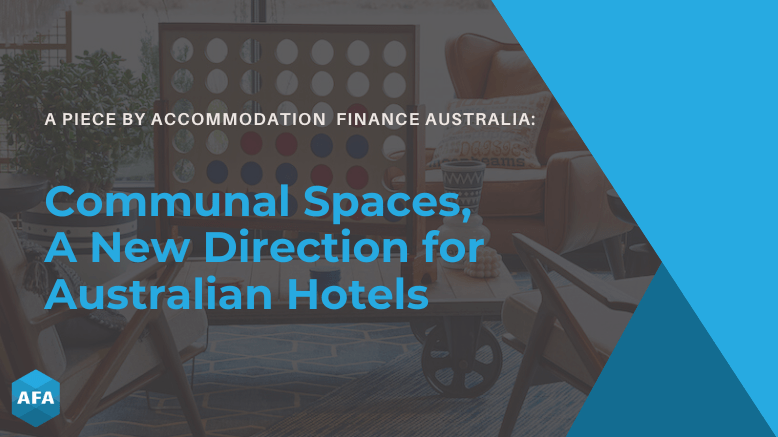Communal Spaces, A New Direction for Australian Hotels

There is no doubt that corporate travellers make up a large portion of hotel guests. For a long time, the in-room services available have been tailored to the needs of these business travellers, including shoe shining, suit pressing and complimentary Wi-Fi. However, properties are now looking outside of their guest rooms for ways to provide extra value.
In order to further accommodate this segment of guests, hotels are now focusing on shaping their communal zones into multi-functional spaces. By providing something more than a quite place to catch up on emails and scroll through social media, properties are able to add to travellers experience in ways which can’t be done from the confines of their room.
As CBD properties get refurbished there has been a clear move away from boxy business centres, with lobbies and communal areas being shaped into inviting functional spaces. This change aligns with a rise in popularity among co-working and co-living concepts, suggesting that consumers are seeking out shared experiences.
Some hotels are fully embracing this concept, with several chains including Accor and Marriott partnering with co-working companies. These partnerships offer guests flexible workspaces, reading nooks and cosy corners outside of their individual rooms.
There is a trend among young consumers in particular of spending less time in their rooms, and more mingling with other guests in communal areas. Many properties targeting Millennials have strived to create lobbies which offer more than just check-in, by adding coffee carts, bars, board games and even arcade consoles.
This is a way that traditional accommodation providers can compete with home-sharing providers. A notable draw card for guests when booking homestays is their ability to access a whole house, living, dining and outdoor areas included. This is particularly relevant for group travel, where guests are seeking joint areas to work, play, lounge and eat.
By adapting their current communal spaces to be a balance between quite working spaces and social hubs, hotels are able to appeal to the social traveller, whilst still meeting the needs of the corporate guest.
This form of innovation is becoming more and more common within the industry, with many providers re-evaluating the ways in which guests use the different spaces available in their property. Communal areas are a prime opportunity for hotels to add extra value to their guests, and this new direction for Australia’s accommodation industry could result in some truly unique experiences.




